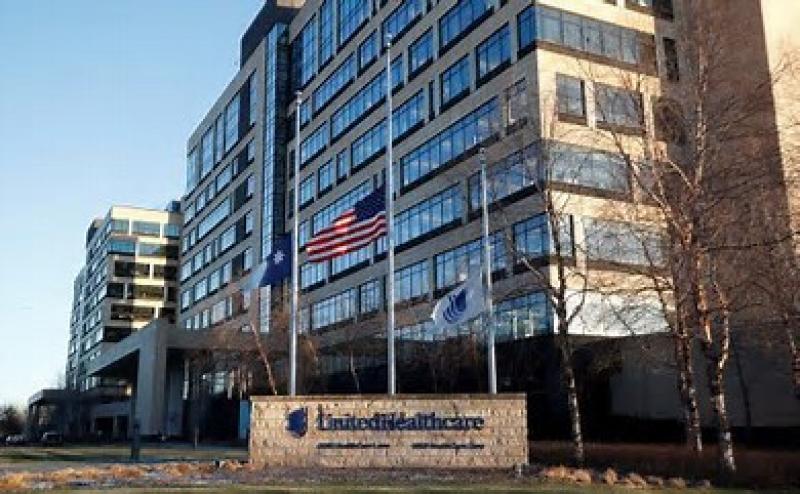UnitedHealth Group C.E.O.: The Health Care System Is Flawed. Let’s Fix It.



As Brian Thompson’s family, friends and colleagues mourn his killing, we are bearing a grief and sadness we will carry for the rest of our lives. Grief for the family he leaves behind. And grief for a brilliant, kind man who was working to make health care better for everyone.
We greatly appreciate the enormous outpouring of support for Brian, who ran our health insurance business, UnitedHealthcare, as well as for our wider company, which I lead. Yet we also are struggling to make sense of this unconscionable act and the vitriol that has been directed at our colleagues who have been barraged by threats. No employees — be they the people who answer customer calls or nurses who visit patients in their homes — should have to fear for their and their loved ones’ safety.
The people of UnitedHealth Group are nurses, doctors, patient and client advocates, technologists and more. They all come to work each day to provide critical health services for millions of Americans in need.
We know the health system does not work as well as it should, and we understand people’s frustrations with it. No one would design a system like the one we have. And no one did. It’s a patchwork built over decades. Our mission is to help make it work better. We are willing to partner with anyone, as we always have — health care providers, employers, patients, pharmaceutical companies, governments and others — to find ways to deliver high-quality care and lower costs.
Clearly, we are not there yet. We understand and share the desire to build a health care system that works better for everyone. That is the purpose of our organization.
Health care is both intensely personal and very complicated, and the reasons behind coverage decisions are not well understood. We share some of the responsibility for that. Together with employers, governments and others who pay for care, we need to improve how we explain what insurance covers and how decisions are made. Behind each decision lies a comprehensive and continually updated body of clinical evidence focused on achieving the best health outcomes and ensuring patient safety.
While the health system is not perfect, every corner of it is filled with people who try to do their best for those they serve.
Brian was one of those people. He was raised in the same Iowa farmhouse as his mom. His dad spent more than 40 years unloading trucks at grain elevators. B.T., as we knew him, worked farm jobs as a kid and fished at a gravel pit with his brother. He never forgot where he came from, because it was the needs of people who live in places like Jewell, Iowa, that he considered first in finding ways to improve care.
When a colleague proposed a new idea to Brian, he would always ask, “Would you want this for your own family?” If not, end of discussion.
Brian was never content with the status quo. That’s why he pushed us to build dedicated teams to help the sickest people navigate the health system. It’s why he fought for preventive health and quality health outcomes rather than simply adding ever more tests and procedures. He believed decisions about health care should start with the individual and championed plans in which consumers could see costs and coverage options upfront, so they could decide what’s best for themselves and their families.
The ideas he advocated were aimed at making health care more affordable, more transparent, more intuitive, more compassionate — and more human.
That’s Brian’s legacy, one that we will carry forward by continuing our work to make the health system work better for everyone.
Andrew Witty is the chief executive officer of UnitedHealth Group, the parent company of the UnitedHealthcare insurance business.
The Times is committed to publishing a diversity of letters to the editor. We’d like to hear what you think about this or any of our articles. Here are some tips. And here’s our email: letters@nytimes.com.



Too little too late.
. Yeah, the fool should have known a drug addled crazy rich person would decide to shoot an executive of a health care company he never interacted with.
At least the left has dropped all pretense of opposing political violence. That charade was tiresome. Although progressives being progressives, I doubt they'll swoon over and justify the crazies who decide to shoot all officials who support universal health care when the bureaucrats deny whatever treatment they desire. Or does the left actually believe care isn't rationed in a socialized system?
LOL
What's funny is to believe denials of care aren't made in every healthcare system.
This was political?
Yes. Have you not seen the reaction to the murder here and elsewhere? It was very political. Elizabeth Warren, AOC etc..
The reaction to anything can be political. I have seen no evidence that the act of violence was political.
Willing? So you claim. Have you sought such partnerships? Or are you content to maximize profits under the current system, which you concede is flawed?
Any proposed regulations that ensure care and lower costs? Pay cuts for executives? Etc.
No national healthcare system spending a third of its operating costs in collections can or will ever supply healthcare effectively or efficiently...
Add in a labyrinth of private for profit insurers and we are surely fucked!
Any supposition that the US government could supply good healthcare services to 100% of Americans is defied by the less than 7% of Americans they regularly fail to provide good healthcare to.